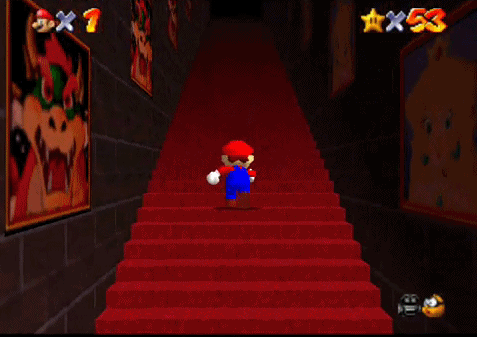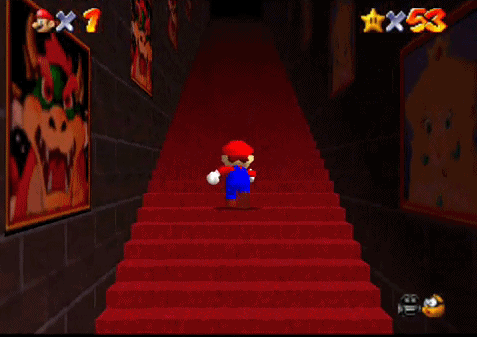The Never-Ending Staircase
Someone I know once said, "You are only free when you write." Is that true?
I was scrolling through Twitter one day in the summer of 2013 — a new college grad, no job, nowhere to go but my parents’ house — when I came across a tweet from one of my old English professors. He was working on a book, and had been pulling 12-hour days for months to get it done. But he wasn’t complaining about it.
“You are only free when you write,” he wrote.
This struck me as strange. The last thing I’d written was a 20-page paper for a Russian history class, a course in which I had read zero of the assigned books. (My roommate Everett and I were infamous in this respect. Once the professor began class by going around the room and asking everyone to say something that surprised us about the book we were supposed to have read. I hastily scanned the first few pages and when he came to me, I spouted some B.S. about something in the introduction. When it came to Everett, he answered, simply, “the title of the book.”)
This paper was the most grueling assignment I had ever suffered through in all my years of American public education. I was in physical agony, hunched over my laptop in our dingy kitchen, every sentence a wrenching chore. Like Mario on the never ending-staircase, every paragraph seemed to bring me no closer to the end.

This wasn’t freedom. It was imprisonment. Torture. Pain.
So when I saw my professor’s tweet, I was baffled. What was he doing that I wasn’t, experiencing that I wasn’t? Maybe this was what you felt when you wrote about something you were interested in. Or maybe he was just more experienced and knew better. Or maybe, I thought, it was something about writing a book.
I can’t say that I now understand exactly what he meant. But I’ve found myself making similar observations to people who have asked how book writing — specifically, my two-month leave from work — has been going. I say positive things. Productive. Rewarding. Relaxing compared to the wide array of tasks one contends with in an office. Things I wouldn’t have expected saying a few months ago, or that day six years ago when I wondered what my professor knew that I didn’t.
Lately, I’ve noticed a quality that undergirds this work, something I can’t describe in a series of adjectives. Let me try to describe it here: When I wake up early in the morning I actually want to open up the Scrivener file. When I’m writing footnotes in the late afternoon — thought my brain starts to drag from fatigue — I can’t immediately think of something I’d rather be doing. On the weekends, in the off hours, my mind finds its way to contemplating this story, even after the years I’ve thought about it. I seem to have a simmering affinity for this work. It’s this disposition, whatever it’s made of, that sustains me through the stresses and frustrations that come naturally.
But what’s at the root of it? Is it my interest in this story? A predisposition toward research and writing? I suspect anyone who gives a large swath of time to a craft would get this feeling, a steady appreciation for every part, the rough edges and the curves. You could be a carpenter or a painter, a coder or a doctor, and feel something like this.
But my professor didn’t say, “You are only free when you’re doing something you like to do.” He said you’re only free when you write, implying there’s something about working all day with words and ideas that brings on a sense of liberation.
Anyone passionate about a vocation would welcome the conclusion that their skill is the key to freedom or goodness or whatever. But I do lean toward thinking words have a special quality. Not long after when I read my professor’s tweet, I was trying to get into running. Still jobless and living with my parents, I tried running three-mile loops in the neighborhood. One day I noticed that if I read a book for a half hour before leaving then the running was easier. My brain didn’t cry out as much, my thoughts were calmer, the pain in my calves less disruptive. For the first time I thought to myself that there was maybe something special about reading and writing. Maybe they were good for the mind, and not just in the traditional sense in which we value them for purposes of learning and enlightenment. Maybe they had a physical effect.
I can’t say writing a book has brought similar epiphanies. But I do know that a rough contentment has followed my everywhere I go. I’m content when I open the laptop. I’m content when I decide to tear down a paragraph and start over. I’m content when I’m plugging every hole, adding every note. There is annoyance, frustration, and despair, but the beating heart that drives me forward plows right through them like a barge through the slow waves of the open ocean.
My Russian history paper was transactional. It stood between me and sweet freedom — the privilege to no longer go to school. That’s probably why I hated it so much. My professor’s privilege was the act of sitting down every day and putting words to the page. It was something he really wanted to do. This is how he intended to use his freedom.
Freedom isn’t getting to stop doing the hard things, or performing every task with blissful ease. Maybe it’s just when a steady resolve and desire to do well meets an unrelenting task.
In Mario 64, the point of the never-ending staircase is that you have to turn around and find another way up (though there’s a cheat). But I like to imagine an alternate history in which Mario keeps running and running, and eventually he gets there, probably just when he thought he couldn’t run anymore.
I like it that way because I see no more appropriate description of the writing process, at its best, than working as fast as you can, motivated by dueling portraits of your nemesis and the person you’re trying to save. Between the thing you’re trying to slay and what, or who, you’re fighting for.

We don’t know if Mario’s happy; we can’t see his face. I think we know that he’s free.
Status report
I’ve written about 51,000 words, or about 60,000 if you count footnotes. My upper limit is 75,000 words, which I think I’ll come at least several thousand words short of — and that’s just fine if you ask me.
The tasks that remain are a mix of (a) the huge, big picture, writerly changes and tweaks to make sure my themes come across crystal clear and (b) the many tiny little checks I need to do to make sure everything’s accurate. I’m switching between these modes pretty liberally. But over the next (checks calendar, holy #$&@!) two weeks and a couple days, I think things are going to go like this:
This week: Fact check, close loops, there may be one or two more interviews in here
The next week and a few days until Jan. 1 deadline: Think big picture, punch up the writing, make sure themes are coming across clearly, and tie up any outstanding threads, celebrate Christmas
Wow it sounds like a lot!!!
No matter what, something is getting submitted on January 1. At which point, upon pressing send, I’m sure I’ll recant everything I said above and declare, “You are only free when you’ve just submitted a manuscript.”
Then I’ll buy a Nintendo 64 and replay the whole damn game.
— Andy
Thanks for subscribing to my “Writing a Book” newsletter! Read my first 11 editions over at Tinyletter, and the rest here on Substack.
Tips, suggestions, or questions? Email me: andythomason13@gmail.com.
Also, there's one thing you can do to really help me. Think of someone you know who might like this newsletter, and forward it their way with the sign-up link: writingabook.substack.com/welcome Thank you!
If you’re not subscribed to my newsletter, you can sign up here.


